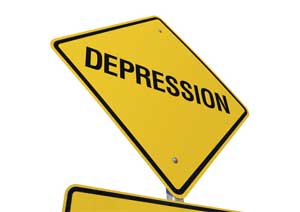What Kind of Depression Do You Have?
Depression comes in many shapes and sizes. Have you been dealing with depression for some time, but haven’t found out which kind of depression you might have? There are many different types of depression, and some people fall into more than 1 particular category. Your psychologist or psychiatrist may give you a label very quickly and can be very wrong as well.
Unless you have a counselor conduct a psychosocial “test’ and ask a lot of questions about your lifestyle, depression symptoms, and your past, you might never get the correct diagnosis. If you don’t have the correct label for your depression, healing may be impossible. What you can do instead is your own research using the information we provide here, as well as make an appointment with a counselor. It will also be helpful if you conduct your own research by using online resources.
Do Your Daily Habits Match Up With Different Diagnoses of Depression?
Read as much as you can and really try to compare the symptoms of your depression to the different types of depression. You will be more educated. Then you can compare the symptoms to see what kind of depression you could have, as well as really pay more attention to your daily habits and see how they match up.
Let’s review the various kinds of depression:
-
Major Depression – These kinds of depression are also known as clinical depression. It is very common but also overly diagnosed. The treatment for this kind of depression is much more involved, and may take awhile to heal from. If you have general feelings of unworthiness, apathy, or fatigue for more than a few weeks, then this might be your diagnosis. Conduct more research online before you come in for your appointment. We want to hear your thoughts and ideas. We are here for you.
-
Manic Depression – This kind of depression is also known as bipolar disorder. Symptoms include insomnia, irritability, grandiose thoughts, and self-destructive habits such as drug abuse, promiscuity, and cutting. Many doctors diagnose people with major depression when it makes more sense to diagnose people with manic depression instead. People with bipolar disorder only try to get help from a counselor when they are depressed because
 they may not view mania as anything “bad”.
they may not view mania as anything “bad”. -
Seasonal Affective Disorder – This is a depression that isn’t as serious as the others, but can greatly affect someone’s life. When you are used to going along just fine with your life and it feels like nothing can bother you, but as soon as the cold seasons come along you start to feel different, you might have S.A.D. You may also have either major or manic depression along with S.A.D. What happens is a person is depressed all year long and then when the fall and/or winter comes around, they feel completely paralyzed as before they were getting along with other forms of healing like exercise, being outside, getting the right amount of vitamins, or even self-encouragement.
-
Atypical Depression – This kind of depression is mysterious.With atypical depression, others around you may not know what’s coming from one day to the next; they just know it will be “something”. This individual will be overly sensitive, have rage attacks, and explode for absolutely no reason at times. People around you may be fed up with your emotional outbursts and your attitude.
Do you know where you fit in? Do you see yourself in any of the above descriptions? It can be overwhelming and even confusing, and that is why we encourage you to conduct more research. Make comparisons, take notes, and pay attention to the way you live your life, and your emotions. Sometimes healing is as easy as acknowledging your negative emotions, what pain caused them to happen, and forgiving your offender, yourself, and your past in full. Individual counseling can help you through the healing process.
*The information provided in this article is for informational purposes only. Never substitute, disregard, or delay seeking professional medical advice and assistance for any health or mental issue(s) you have or are concerned about because of something you have read.